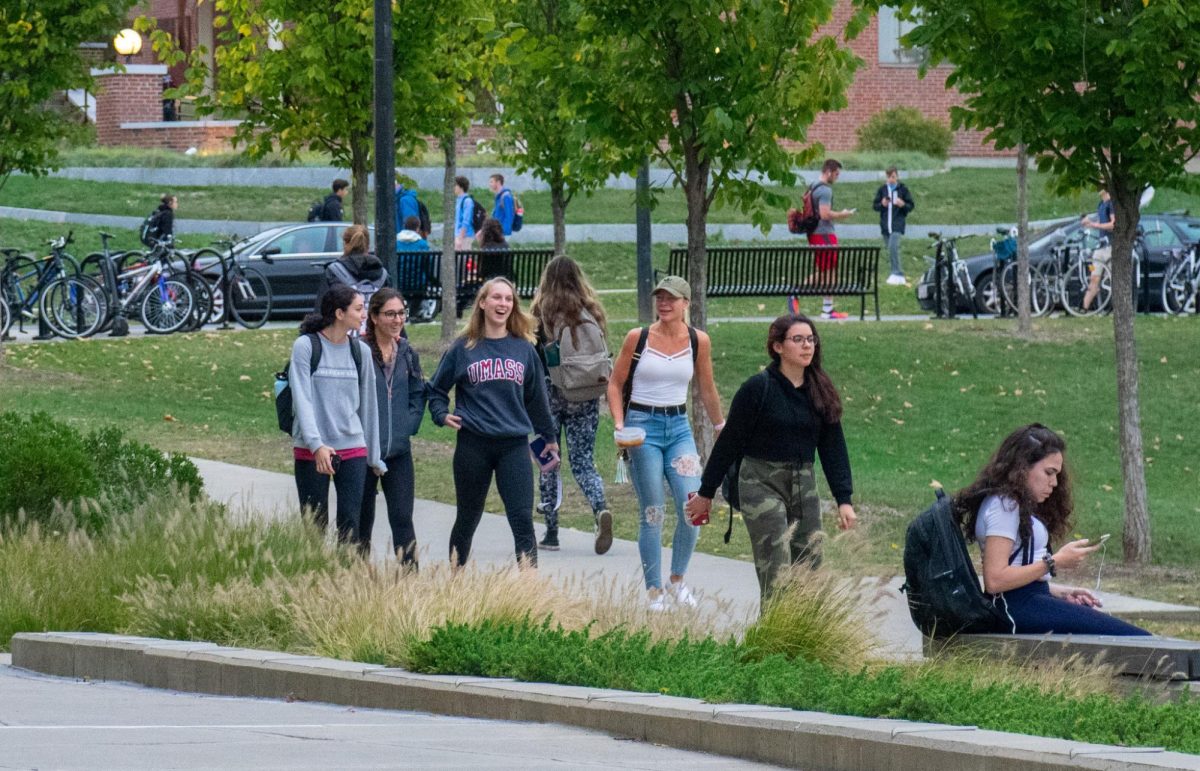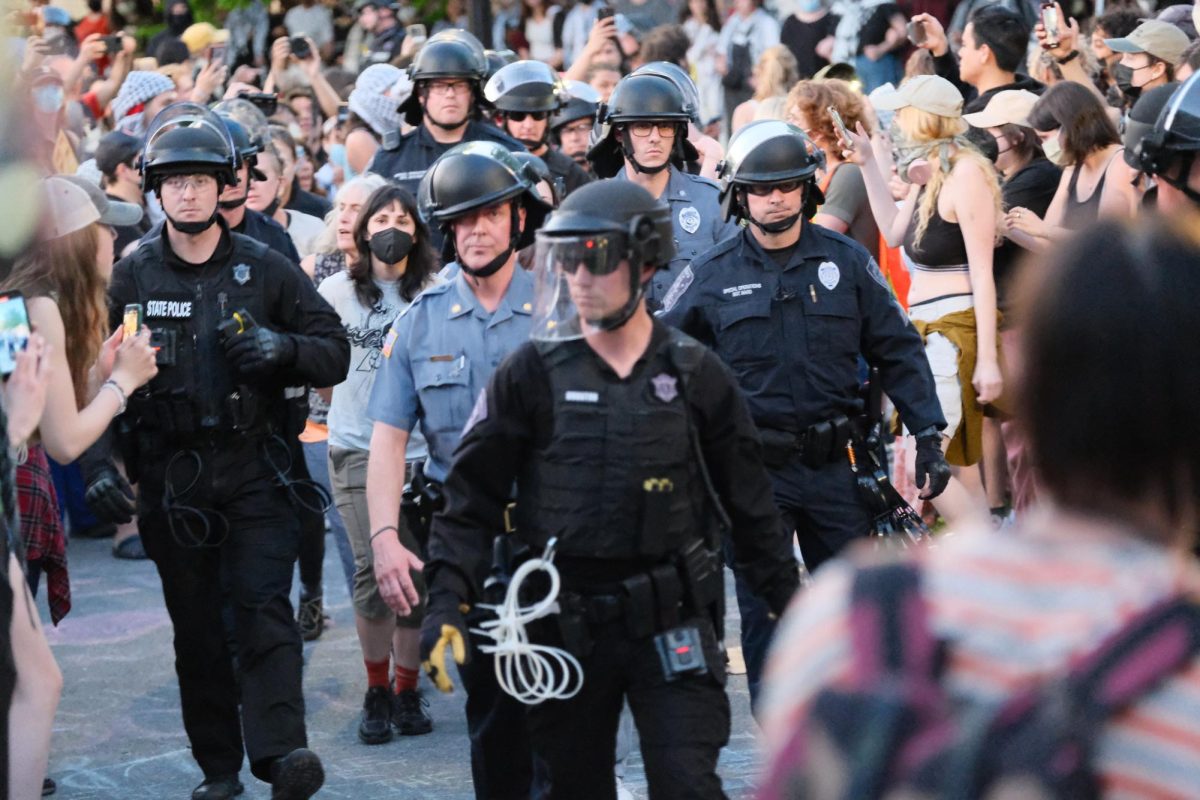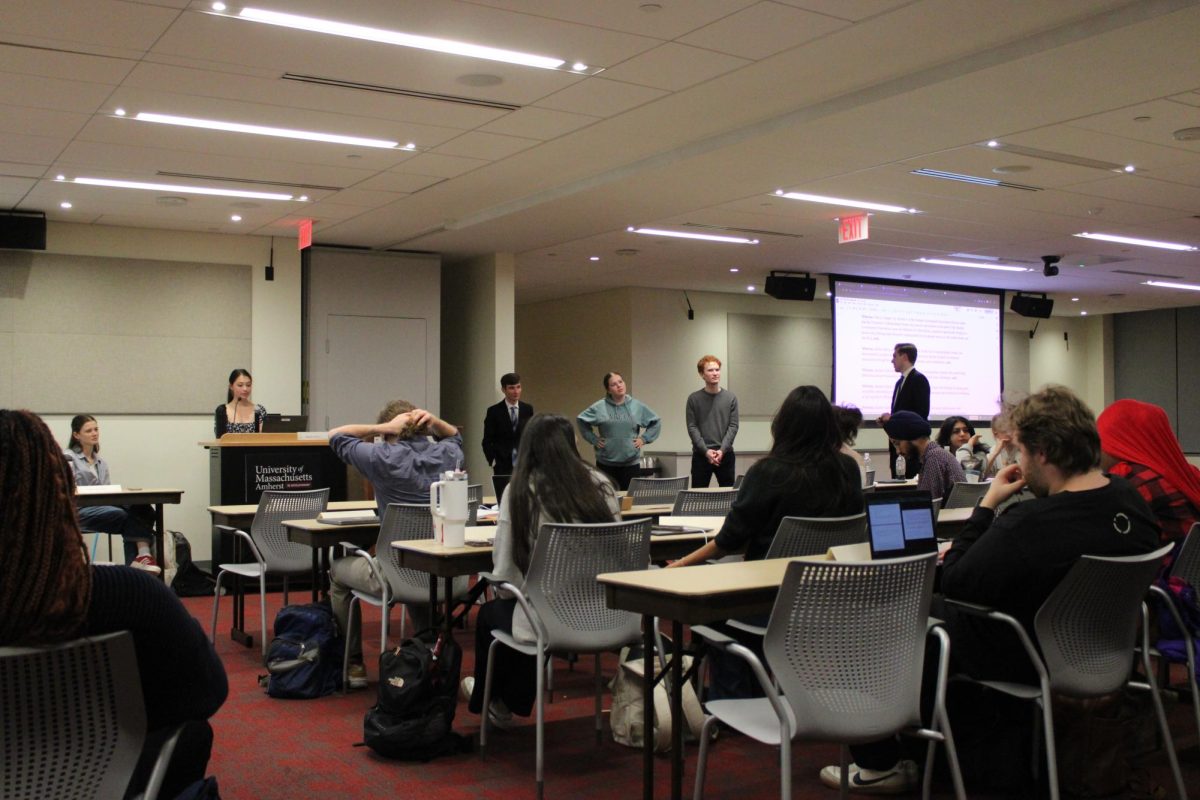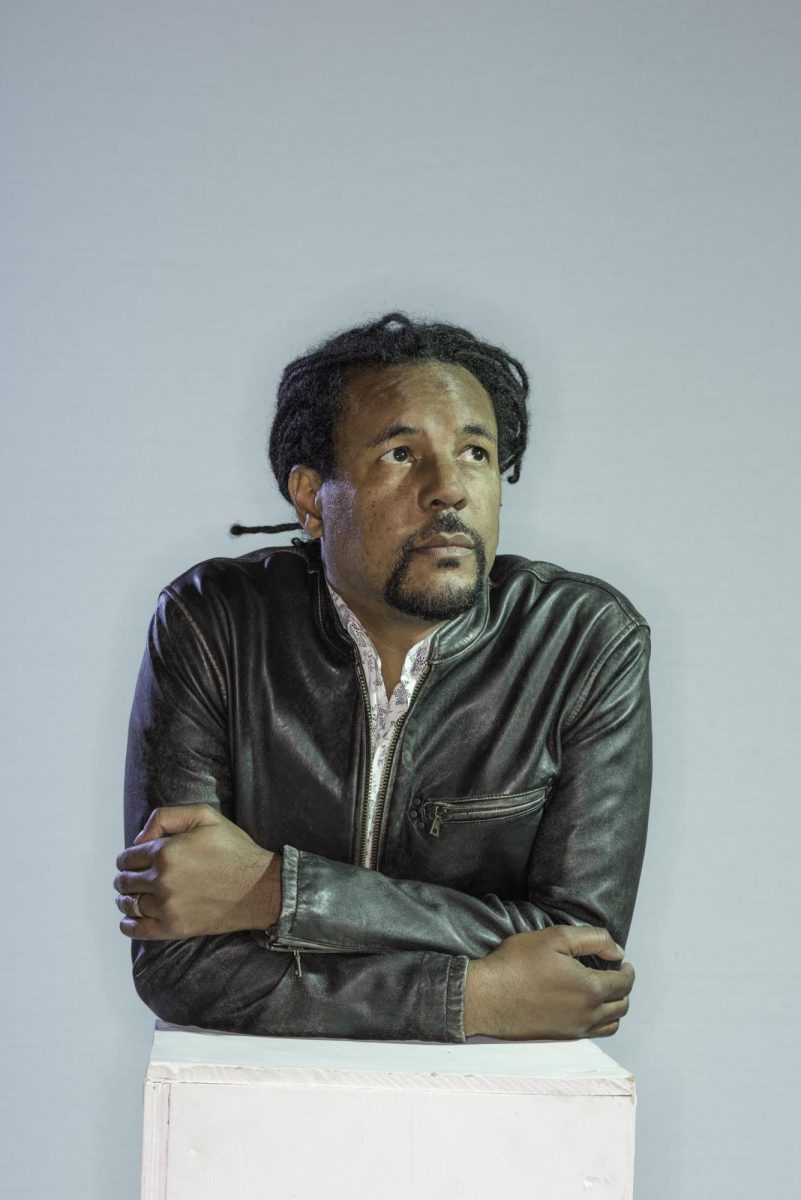The first few months in the journalism class, Press and the 3rd World, were intriguing and enjoyable. The course was intended to show how the Western media distorted and down-played news in turbulent areas of the Third World. The assigned books were meant to enlighten the class about critical issues, ranging from the AIDS dilemma in Haiti to the hidden secrets of the Belgian Congo. Much of the class time was devoted to discussion, and our two-and-a-half-hour sessions usually ended an hour early. Yet, once the Israeli-Arab conflict was introduced, my feelings about the class changed drastically.
The assigned reading was “How to End the War of 1948,” by linguist Tanya Reinhardt. After doing a little research on the author, I found several links describing the Jewish Tel Aviv University Professor as an extreme leftist who likened Israel to an apartheid state. “Compared to her I was a distinguished Zionist. She rejected the existence of the State of Israel,” Uri Avneri, a widely known Israeli far leftist, said in her obituary in Israel News.
Skimming the book, it was clear to me that Reinhardt was an advocate of the Palestinian cause, as she misled her audience on certain controversial events, like the supposed massacre in the town of Jenin. The Palestinians fabricated a story that the Israeli Defense Forces (IDF) murdered hundreds of civilians when they invaded a refugee camp, a hotbed of terrorists and suicide bombers, in the West Bank town of Jenin.
In reality, 56 Palestinians, both fighters and civilians, were killed – as well as 23 Israeli soldiers. Mistruth about the incident disseminated throughout the Arab world and was quickly acknowledged as truth by the European media.
I couldn’t wait to go to the next class to question the choice of this book and voice my objections to my professor, who had made no mention of the political ideologies of the author, only saying she was Israeli. I was eager to point out that Reinhardt didn’t represent the opinions of the majority of Israelis. However, before I could pose any questions, my professor began to lecture on the long-standing conflict between Israel and Palestine even before Israel was declared a state.
She claimed that the Palestinians weren’t involved in the Holocaust, and that it was only a European war. Yet, when I challenged her by explaining that the Grand Mufti of Jerusalem, Hajj Amin el Husseini, corroborated with Hitler, she ignored me. She claimed that early Zionists were the first suicide bombers – but when I questioned her for examples, she told me to look it up online. I now realized that this class had turned from an open exchange of ideas to a pro-Palestinian bias represented by the professor.
At the next class, the professor showed the film, “Peace, Propaganda, and the Promised Land,” by UMass Amherst professor Sut Jhally and UMass Amherst alumnus Bathshiba Katzman. She chose it to educate the students on what was really occurring in Israel and what effects it had on the media. This film, which our professor claimed was not propaganda, provided false information about Israel along with focusing on “the media censorship” by the Israeli government without addressing any of the same criticism towards the Palestinian Authority.
While watching this misleading film, I overheard many students whispering about how they didn’t know about these facts and wondering why the American media did not show them the Palestinian side. This was what worried me most about this film. I was concerned that the majority of students would leave the class with a very one-sided view of the Israeli-Arab conflict, particularly since they were unfamiliar with the subject matter.
Throughout the film, I felt so uncomfortable and angered that I couldn’t sit through it and left early. I felt betrayed by my professor and questioned whether I could trust what I had learned from her prior to this class session. I decided to e-mail her my concerns.
She said I should express my objections in my assigned oral critique of the film. I argued that the best way to provide was to show a film depicting the Israeli point of view. She replied, “I don’t think that time permits a showing of another video.” Students had been kept for the entire class only twice that semester, once for Sut Jhally’s film. At that point, four sessions of the class still remained.
Clearly there was time to present a film describing the Israeli viewpoint. Apparently she had no intention of offering her students a balanced view of the Middle East conflict.
The supposed objective of Press and the 3rd World was to broaden the minds of college students about the poor conditions in many undeveloped countries not always represented in western media. In my past journalism classes, I was taught to report facts objectively so that my audience would be allowed to come to its own conclusions. Ironically, the professor presented an unbalanced, one-sided view of the Israeli-Arab conflict. This is not how a journalism class should be taught.
Aviva Slomich is a UMass student.






